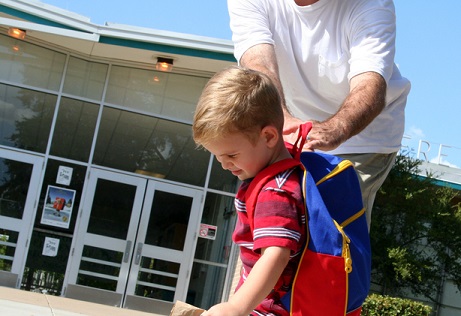
According to leading education lawyer Jacquie Seemann, that’s certainly an option – but schools should be wary as two different standards will apply depending on whether they’re private or public institutions.
“Private schools have got far more flexibility because they get to write their own enrolment contract with the parent,” says Seemann, a partner at Thomson Geer.
“That means if they’re being proactive with this, they can anticipate a whole range of parent behaviours with some nice general language that would appear in the agreement.”
Seemann – who has practiced employment and education law for over 25 years – says schools can easily include a code of conduct in their enrolment contract which applies to parents.
“The contract can make it clear that a child is enrolled at the school so that the school can provide educational services to that child and get the best possible outcome for her or him – but the school can only do that if there is a constructive, cooperative relationship with the family,” says Seemann.
“Then you can extend that idea of a cooperative or constructive relationship and you can be more specific,” she continues. “You can say the parent has to obey the school’s rules or code of conduct which should include things about the way parents are expected to behave.”
If parents breach the code of conduct, they’ve essentially broken the enrolment contract, and Seemann says schools are then entitled to ban them from the site.
“If you’ve got that kind of document in place, you can exclude parents – I’ve worked with schools that have done it,” she tells the Educator, recalling an incident in which a parent got into a fight with another family over bullying allegations.
“That parent was abusive on campus and the school banned him from the premises for the rest of that semester – they then required him to have a meeting with the principal and ultimately to change his behaviour,” says Seemann.
While private schools have more freedom to set their own expectations, public schools are bound by government policies – however, they do still have some options to explore.
“In terms of being able to ban people from the premises, there is the Inclosed Lands Protection Act (NSW), and that’s available to any school – private or public,” says Seemann.
The legislation stipulates that a school can require somebody to leave if they’re conducting themselves “in such a manner as would be regarded by reasonable persons as being, in all the circumstances, offensive.”
Seemann also says schools could potentially assist a person (eg. principal, teacher or parent) to file for an Apprehended Violence Order (AVO) if a parent’s behaviour became aggressive.
“Let’s say a parent is threatening the principal, the principal could seek an AVO which would say the person can’t be within a kilometre of the principal, including school grounds.”
However, Seemann says that banning parents from the school grounds shouldn’t be the first port-of-call when a problem arises.
“Your first response should not be; ‘You’re not allowed on the premises,’” she tells the Educator. “Like any kind of disciplinary or management process, it’s about saying; ‘We told you what we expected, you didn’t do what we expected, you’ve broken the rules so how are we doing to deal with that?’”


